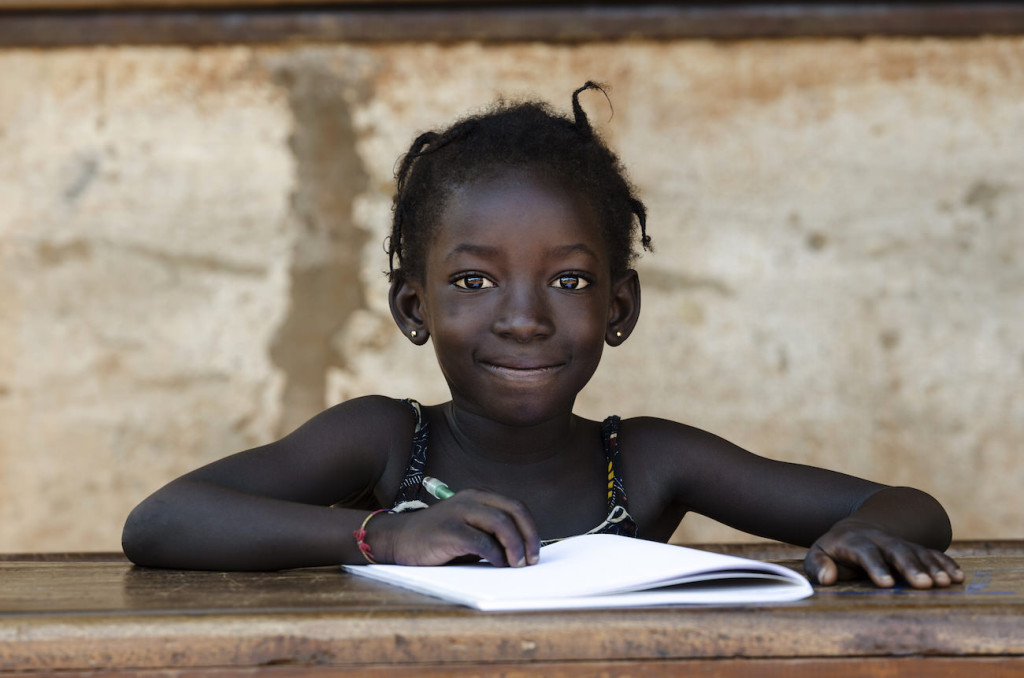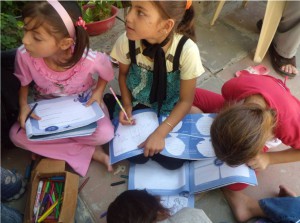 Psychological First Aid for Children Traumatized by Mass Disasters
Psychological First Aid for Children Traumatized by Mass Disasters
Guided Activity Workbooks developed by The Children’s Psychological Health Center help parents, teachers, therapists and disaster relief responders working with children and families traumatized by natural or man-made disasters. These specialized resources, derivatives of Reflective Network Therapy, are designed to provide psychological first aid for highly stressed children and families to help them cope with the emotional experience of a specific natural disaster—Hurricane, Earthquake, Flood, Tornado, Fire, Tsunami—or the trauma or threat of regional conflict.
Many thousands of children throughout the world have benefited from the use of these workbooks.
How Guided Activity Workbooks help
The workbooks encourage healthy expression, learning and coping and help children and their families overcome bad memories and fears. The child’s personal feeling of being in control and sense of personal history are enhanced. This powerful method can lead to recovery from trauma or potentially traumatizing events.
These workbooks were developed by our experts to support children’s self-directed expression of memories, feelings, or dreams and to elicit verbalization and representation of traumatic events.
As a treatment method, the use of these resources has been manualized, studied and proven to improve important aspects of behavior and mental health.
Workbook topics
Guided Activity Workbooks have been developed for children and families traumatized by:
- Natural Disasters
- War and attack or threat of attack and during regional conflict
- Homelessness
- Preventive Psychotherapy with Foster Children
“It is rare for me to be emotionally moved when reviewing a manualized treatment tool, but the developers of this one clearly understand the heart of a child and what is needed to facilitate their adaptation and healing in the aftermath of trauma. There are detailed how-to guidelines in the workbook, which double as a summary of cornerstones for effective treatment of traumatized individuals. As a consultant who specializes in primary and higher education settings, I will consider incorporating the workbooks into recommendations for dealing with certain individual or class-wide issues including postvention response.”
—Jennifer Neuhof, Psy.D. School Mental Health Consultant and Past College Counseling Center Director, Greater New York Area.
Help for Children in Foster Care
Find out about a psychodynamically informed, highly structured, cognitively oriented therapy designed for children in foster care placements using the My Personal Life History Book and the Manual for Preventive Psychotherapy with Foster Children.
Download Guided Activity Workbooks
All of our Guided Activity Workbooks are available for download at no charge. Individuals, schools and helping agencies may reproduce up to 100 copies at no charge. Helping agencies may request a license for mass production. Many titles are available in more than one language.
Training in the use of these resources
For information about training and guidance in the use of My Personal Life History Book in conjunction with the Manual for Preventive Psychotherapy with Foster Children, please contact us regarding full-day seminars, group consultation or individual consultation.
Research regarding CPHC Guided Activity Workbooks
A brief compilation of research about the effectiveness of our Workbooks, including:
- Psychoanalytically-based workbooks to help children cope with disaster, Kliman, G. (2006). The Journal of the American Psychoanalyst, (4), 16-18.
- Psychosocial support to conflict-affected children, youth and families, UKaid and Mercy Corp Evaluation Teams (2009). Queen Margaret University Institute of International Health and Development, Edinburgh.
- Helping children heal project: A school based mental health recovery effort, Lawrence, L. E. (2006). Tulane University School of Medicine, Dept. of Psychiatry and Neurology, New Orleans, LA
Gaza Workbook, UKaid-Mercy Corps, Full Report: Psychosocial Support to Conflict-Affected Children, Youth and Families in Gaza. A program supported by the United Kingdom’s Department for International Development (DFID). Mid-Term Evaluation, December 2009.

